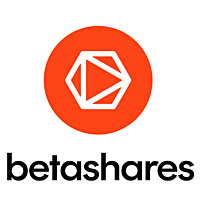The cure your portfolio has been searching for
With analysts divided as to whether sharemarkets will pull back and re-test the lows hit on 23 March, it’s hard for investors to know whether to buy or sell at this point. While it is almost impossible to time the bottom of the market, one approach is to invest in sectors that give you more confidence about their outlook. We feel that one such sector is global healthcare.
The healthcare sector
There are already macroeconomic factors that make the healthcare sector enticing, such as an ageing population and a growing middle class in emerging markets, all of whom will demand more extensive drug treatments and medical care over time. The sector includes some companies with strong balance sheets flush with cash, increasing the possibility of higher dividend payments, share-enhancing stock buybacks, and mergers and acquisitions.
And now we have the the COVID-19 global pandemic, which has substantially curtailed global economic activity, and, at the time of writing, has already resulted in over 3 million confirmed cases and over 200,000 deaths worldwide according to the Johns Hopkins data, and is likely to have infected many times that number of people.
Healthcare could be considered more “defensive” in nature relative to some other equity sectors because these companies’ products and services continue to be required by consumers in difficult economic times, and the sector’s earnings have tended to be relatively resilient in economic downturns.
Although the sector has performed relatively well recently, the current discount to the overall market on a best estimate P/E basis is attractive, as the sector historically has traded at a premium to the market over the past 15 years.
The race for a vaccine
Although the WHO feels that a vaccine for COVID-19 is still at least 12 to 18 months away, there is a race amongst healthcare companies to start clinical trials and have the first treatment approved by the U.S. Food and Drug Administration (FDA), as this would likely lead to a massive windfall.
Two companies that are leading the way in the search for a vaccine (to prevent the disease) and antivirals (to treat the disease) are Johnson & Johnson (J&J) and Gilead Sciences Inc.
J&J has been actively engaged in fighting pandemics for over a century and has been working on a coronavirus vaccine since January, when the virus’s genetic sequence became available. J&J recently announced it will spend $500 million as part of a $1 billion partnership with the U.S. Government to research and produce a vaccine. The agreement was signed on 27 March 2020, and followed another order made as part of the same contract with Janssen (J&J’s pharmaceutical arm) for $150 million on 20 March 2020 for a new anti-viral for COVID-19.
On 30 March 2020, the company announced plans to begin human testing of the vaccine in September, working towards an anticipated emergency use date in early 2021. If trials go well, J&J says it can produce up to 900 million coronavirus vaccine doses by April 2021, and plans to make 1 billion doses or more annually. The company says it will start manufacturing this month before the vaccine has gone through clinical trials or has been approved by the FDA, in order to have large quantities of the vaccine ready to go to market early next year.
J&J has also increased its quarterly dividend by 6.3% after a strong first quarter, even as the U.S. drug and consumer products group cut its guidance for 2020 because of the impact of the pandemic.
Gilead Sciences Inc. saw its stock soar as much as 17% in after-hours trading on 16 April 2020, as a Chicago hospital treating severe COVID-19 patients with their antiviral medicine Remdeivir saw rapid recoveries in fever and respiratory symptoms, with nearly all patients discharged in less than a week. Remdeivir was one of the first medicines identified as having the potential to impact SARS-CoV-2, the novel coronavirus that causes COVID-19, in lab tests.
These positive results may lead to fast approvals by the FDA and other regulatory agencies, and make Remdeivir the first approved treatment against the disease. However, experts remain cautious, as the results were based on only 125 patients and not on full clinical trial data.
Other contenders in the race to develop the first COVID-19 vaccine include GlaxoSmithKline, Sanofi and Pfizer. Along with Gilead, other big pharma groups such as Roche and Novartis are already in clinical trials for an antiviral.
For investors seeking to gain exposure to the above companies and other global leaders in the health care sector, BetaShares offers the Global Healthcare ETF – Currency Hedged (ASX: DRUG). Johnson & Johnson is currently the largest holding in fund with an 8.6% weighting, while Gilead Sciences Inc. currently has a 2.0% weighting. As it is uncertain who will win the race to come out with a vaccine or antiviral, having exposure to the broader sector could give you a better chance of holding the winner(s), and may be the COVID-19 cure for your portfolio.
Find out more
BetaShares provide access to a wide range of market indices, asset classes and investment strategies, all of which can be bought or sold like any share on the ASX. For further information, click the contact button below.
3 topics
1 stock mentioned

